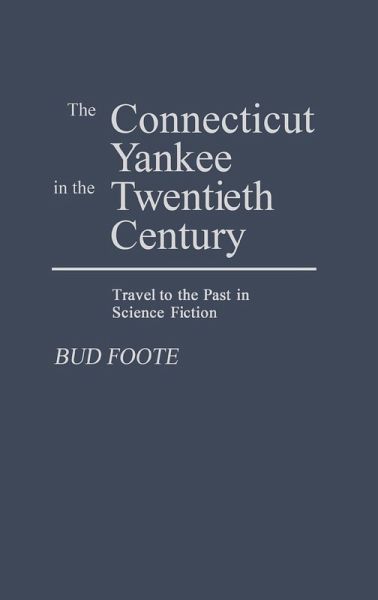
The Connecticut Yankee in the Twentieth Century
Travel to the Past in Science Fiction
Versandkostenfrei!
Versandfertig in 1-2 Wochen
89,99 €
inkl. MwSt.

PAYBACK Punkte
45 °P sammeln!
The first examples of travel to the past appear early in the nineteenth century, but it was not until the publication of Mark Twain's A Connecticut Yankee in King Arthur's Court that we see a hero taking advantage of a combination of hindsight and advances in technology to build an empire in the past. Given that this scenario is such a common twentieth-century fantasy, its late appearance is somewhat surprising. As fewer and fewer writers find travel to the future an appealing scenario, travel to the past and to paratime--alternative universes--have come increasingly to the forefront. Twain's ...
The first examples of travel to the past appear early in the nineteenth century, but it was not until the publication of Mark Twain's A Connecticut Yankee in King Arthur's Court that we see a hero taking advantage of a combination of hindsight and advances in technology to build an empire in the past. Given that this scenario is such a common twentieth-century fantasy, its late appearance is somewhat surprising. As fewer and fewer writers find travel to the future an appealing scenario, travel to the past and to paratime--alternative universes--have come increasingly to the forefront. Twain's Connecticut Yankee contains, explicitly or implicitly, most of the problems and themes which later writers have wrung out of past time-travel. Concentrating on travel to the past, this study details, both in Twain's seminal work and in its science fiction successors, the various roles played by the traveller to the past--nostalgic, tourist, imperialist, Oedipal hero, and existential isolate--and attempts to relate these roles both to the rest of Twain's work and to the world-view of contemporary America. While other writers have dealt with time travel as part of a general survey of science fiction, Foote's study is among the first to relate it to the body of Mark Twain's work and to attempt to account for the appeal of time travel to the past in historical, geographical, and psychological terms. Because it straddles several disciplines, it will appeal to those interested in science fiction, American literature, and popular culture.


